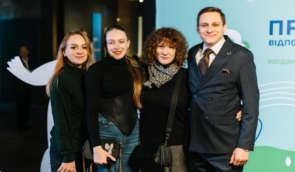Statement on threats to the freedom of expression posed by inconsistent application of international human rights standards by courts
We, human rights defenders and representatives of the media, express grave concern regarding the quality, proportionality, legality, and fairness of recent court rulings on lawsuits against journalists, media outlets, and internet users in Ukraine.
We draw the public’s attention to instances in which courts abuse anti-defamation legislation, ignore the case law of the European Court of Human Rights, and ignore international standards to protect freedom of expression in their decisions. As a result of these rulings, Ukraine is building a record of judicial practice that threatens democracy and is inconsistent with Ukraine’s Constitution and international commitments to protect human rights and freedoms.
For instance, a growing number of court rulings have required reporters to refute information proven to be true by their journalistic investigations. In rulings on several lawsuits against reporters at “Nashi Groshi with Denys Bihus” [Our Money with Denys Bihus] filed by the subjects of their investigations – a former high-ranking official Serhii Semochko and the Gladkovskyi family – the court required the journalists to refute their so-called “value judgments” which were in fact based on statements by witnesses and official documents. These rules run directly contrary to the practice of the European Court of Human Rights. A court has also banned the publication of the names of people involved in high-profile corruption cases. This ruling directly contradicts legal norms on the publication of information the public has a strong interest in knowing, which should prevail in such cases.
Also concerning is the recent court decision regarding the unauthorized disclosure of personal data of staff at the “Schemes” investigative program by former high-ranking official Andriy Portnov. Even though Portnov’s publication of the personal information of drivers who work for “Schemes” clearly poses a risk to journalists’ life and safety, the court refused their request to ban the public disclosure of this information and even required that the journalists pay Portnov’s legal fees.
Human rights defenders have repeatedly criticized the blocking of websites and web platforms without court order, a policy introduced by Ukrainian Presidential decree in 2017. However, even in cases when courts have ruled to restrict access to information or block websites, the quality of their legal reasoning has been questionable. For example, a court ordered the “arrest of intellectual property rights that arise from internet users when using web resources” in response to lawsuits against the “Enigma” platform, informator.news, the “Korrespondent” website, and others. In its ruling, the court does not specify which content on the websites violates “intellectual property rights,” which property the ruling applies to, or how internet users obtain such property rights.
In another worrying lawsuit filed by “C14” against “Hromadske TV,” the court based its decision almost exclusively on a linguistic analysis. The court required “Hromadske TV,” which had characterized “C14” as a “neo-Nazi” organization, to retract its statement. Despite media lawyers’ and human rights defenders’s serious doubts about the legality and soundness of the linguistic expert’s analysis, the court apparently ignored the other evidence that was presented, contrary to the European Court of Human Rights’s case law.
A recent court ruling in favor of parliamentarian Victor Medvedchuk in his lawsuit against Vakhtang Kipiani and the “Vivat” publishing house provoked a public outcry and justifiable criticism by media lawyers. The court, which ruled to ban the distribution of a book, does not distinguish facts from value judgments in its decision. Moreover, it ignores the contribution the book makes to public discourse. This decision is yet another worrisome sign of the state of artistic freedom of expression in Ukraine.
As human rights defenders and journalists, we often invoke international human rights standards on the protection of the freedom of expression. According to these standards, an independent judiciary is one of the key protectors of constitutional rights and freedoms from political influence or any other limitations.
Court decisions that restrict the exchange of information, opinions, and ideas; fail to protect the rights and interests of journalists engaged in legitimate professional activities; that are justified by weak legal reasoning that is inconsistent with Ukraine’s laws and international human rights obligations have a chilling effect on the freedom of expression and pose a danger to the democratic development of the country.
ZMINA. Human Rights Center
Human Rights Platform
Institute of Mass Information
Anti-Corruption Research and Education Centre (ACREC)
Digital Security Lab
Blueprint for Free Speech
If you have found a spelling error, please, notify us by selecting that text and pressing Ctrl+Enter.















